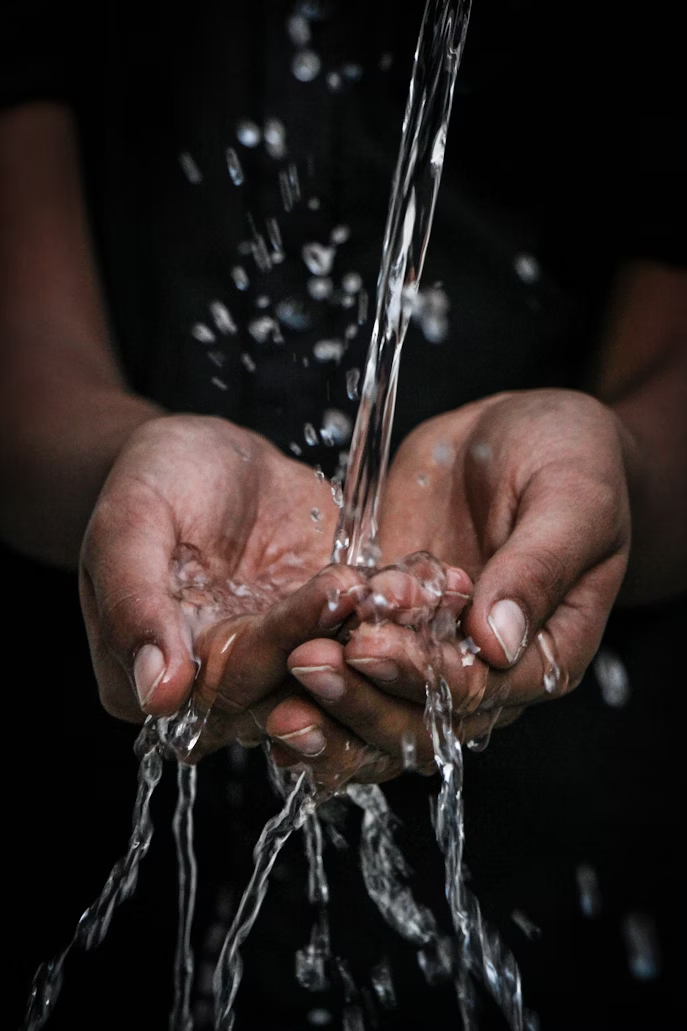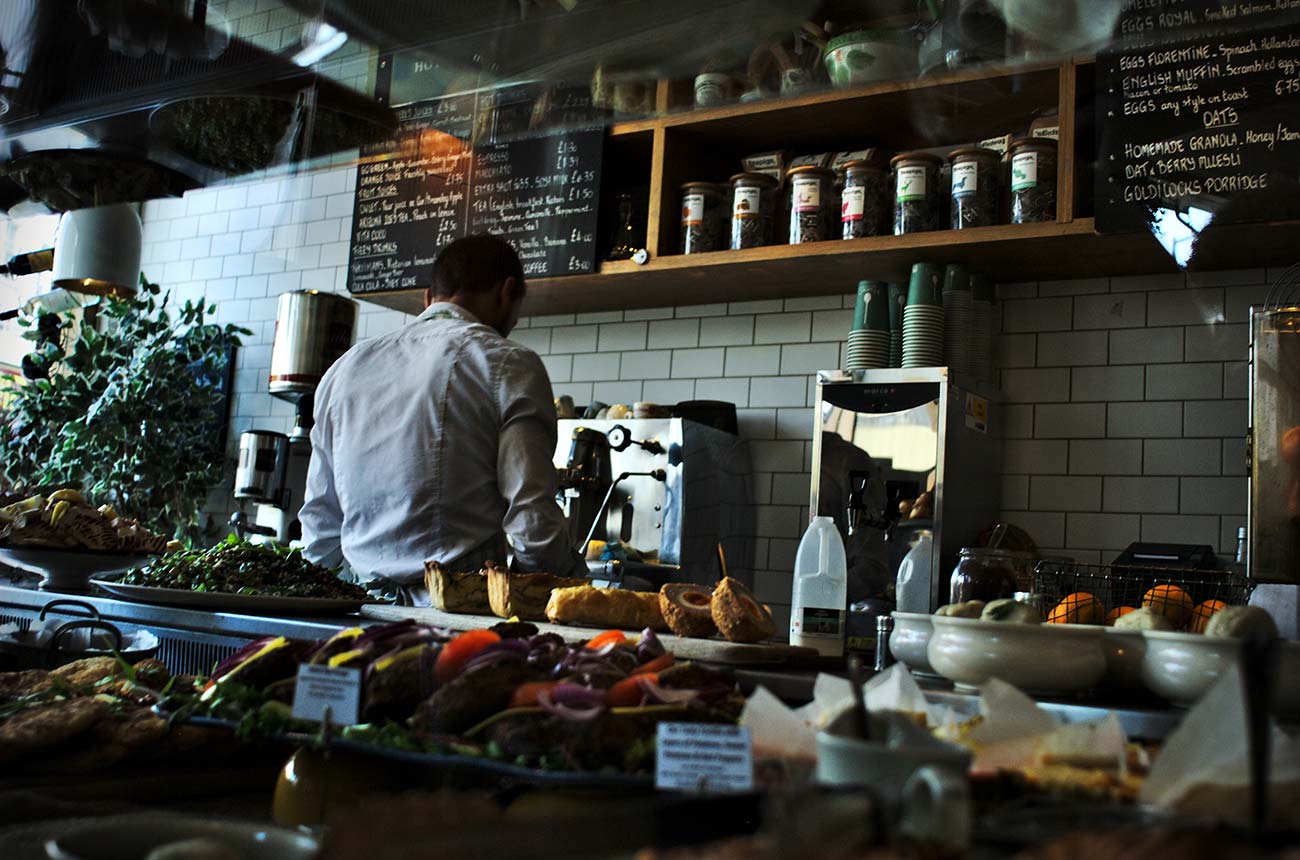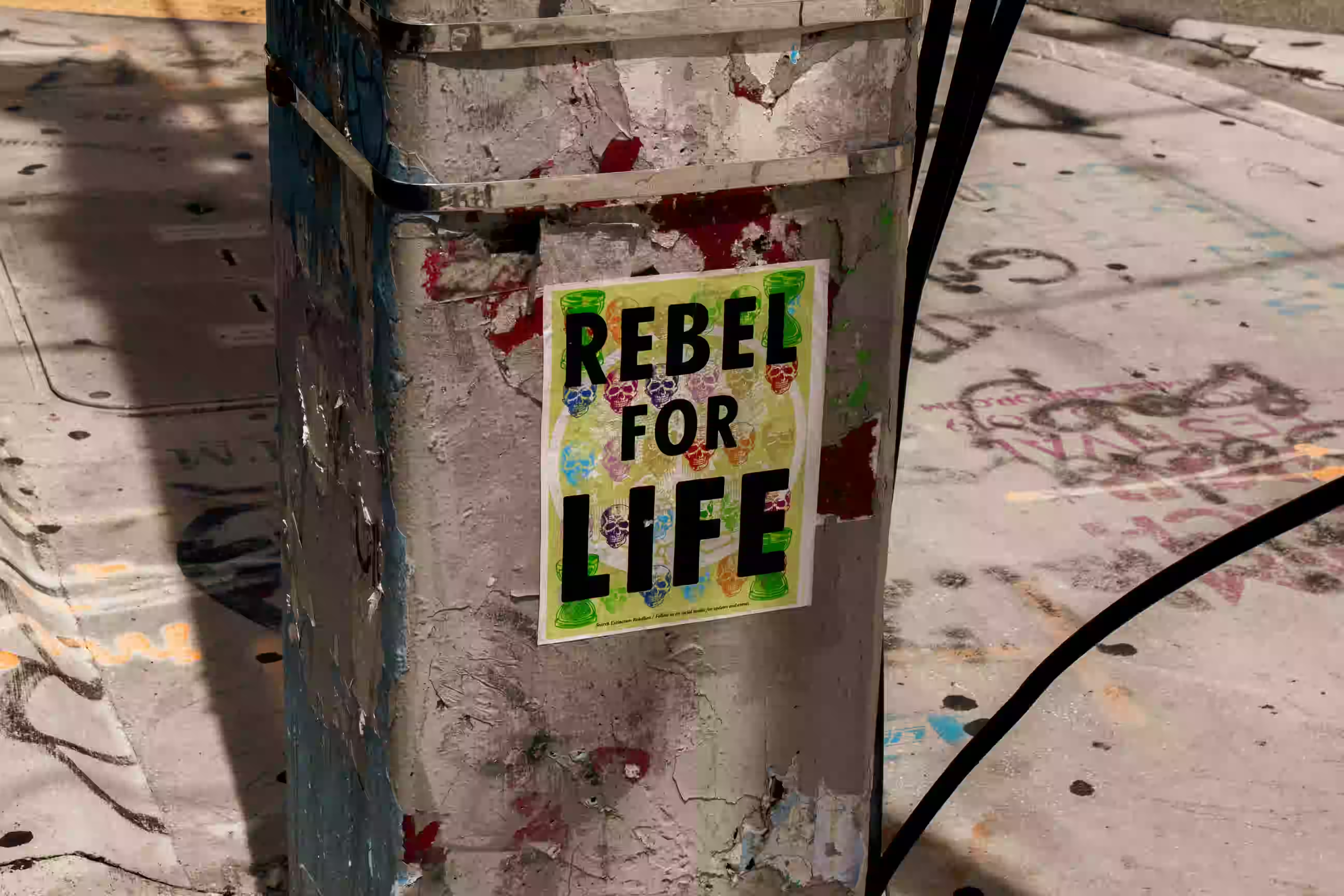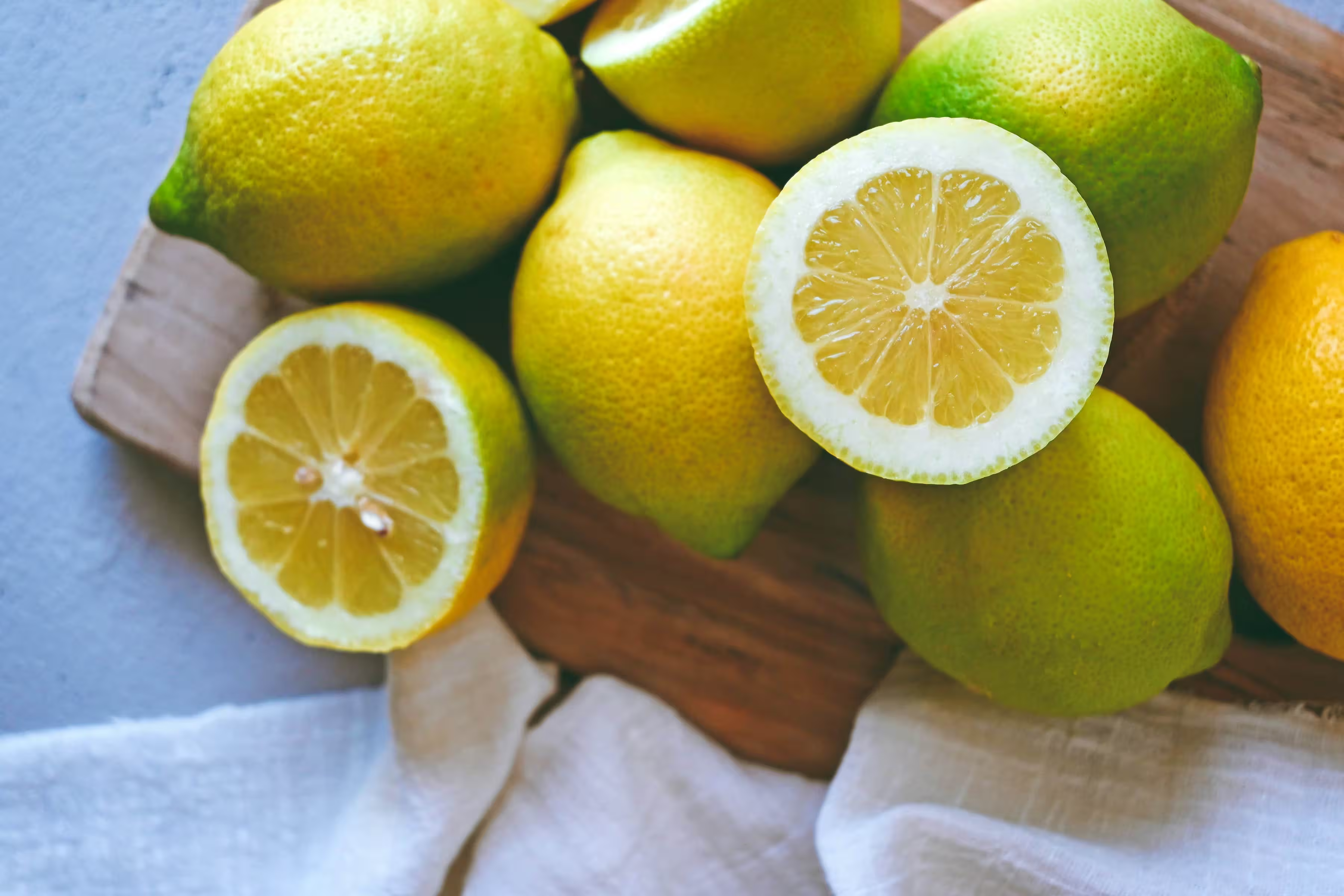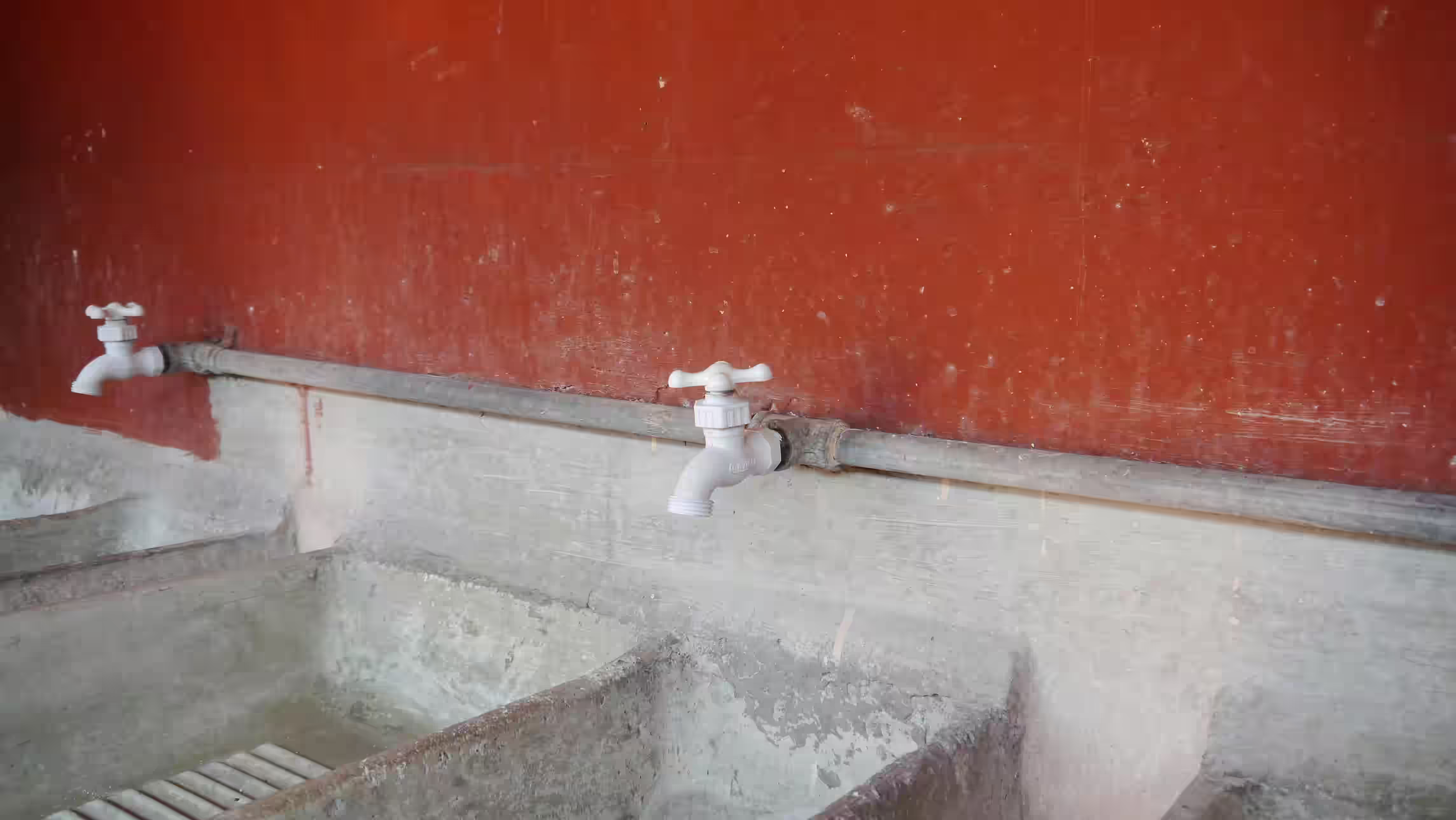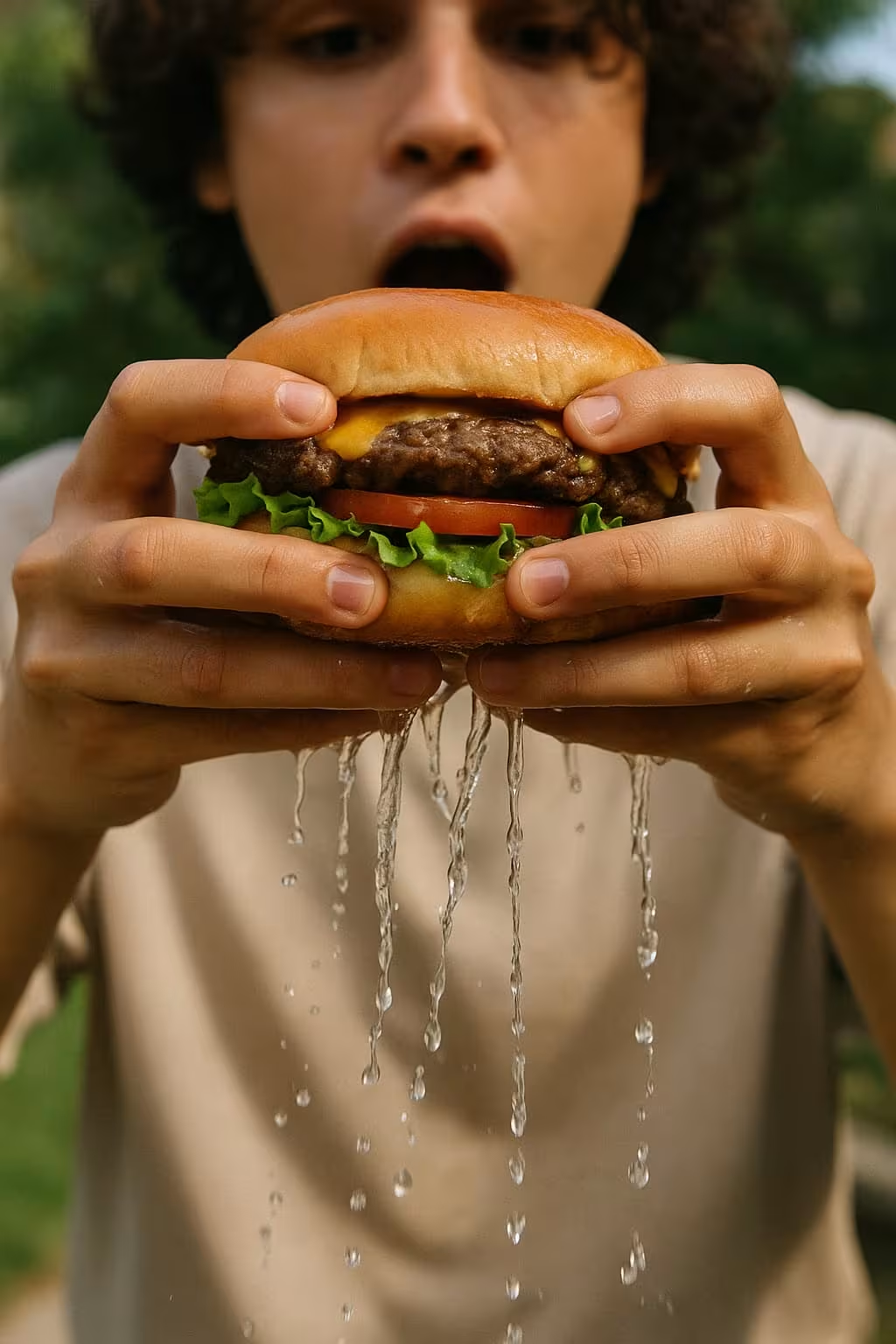

The Hidden Water Cost of Your Burger: 77 Showers Worth of Water
What every young person needs to know about the invisible water cost hiding in your favorite foods.
Picture this: You're scrolling through TikTok and Instagram when a wild craving hits.
The 20-minute water bomb
That juicy burger from your favorite spot is calling your name. You grab your keys, hop in your car, and 20 minutes later you're biting into 200 grams of pure satisfaction. But here's something that might blow your mind – that single burger just consumed the equivalent of taking 77 showers. No, we're not talking about calories. We're talking about water.
The numbers that hit different
Let's get real about what it actually takes to produce beef. Scientists have calculated that producing just one kilogram of beef requires approximately 15,000 litres of water – that's enough to fill your bathtub 200 times. This is nearly four times more water than producing the same amount of lentils, and dramatically more than plant-based alternatives like beans or vegetables.

Pause & Reflect
When did you last think about the water in your food?
Where all that water goes
Here's where it gets really wild: 99% of this water footprint comes from feeding the animals, not from what they drink. We're talking about watering massive fields of corn, soy, and grass that feed cattle throughout their 18-24 month lives. Every blade of grass your future burger ate needed rain or irrigation to survive.
The life cycle reality check
Let's follow a typical cow through its life: Baby calves drink milk from mothers who need constant hydration and feed. At 6-18 months, they eat grass and hay requiring enormous amounts of water to grow. In their final months, cattle eat 450 kilograms of grain-based feed. Between 700-1,000 litres of water are used per animal at processing.
Why your future depends on this
Climate change isn't some distant sci-fi scenario – it's happening now, and water scarcity is becoming real. California produces more food than any other US state but is also one of the driest. Much of the irrigated farmland for cattle feed is in regions that experience frequent droughts. We're essentially betting against a future where water becomes even more precious.
The plot twist nobody saw coming
Here's the thing – we're not here to shame anyone into giving up their favorite foods. Life's too short, and food is deeply personal. But knowledge is power. Research shows that just 12% of Americans consume nearly half of the country's beef. This suggests that small changes by heavy consumers could have massive impacts.

Pause & Reflect
What if your food choices were actually votes for the future you want?
Small swaps, big impact
You don't need to go cold turkey on beef. Try burger Monday instead of burger Friday – cut consumption by 80% but still enjoy it weekly. Choose 150-gram burgers instead of 200 grams to save 750 litres of water. Mix it up with plant-based options that actually taste incredible, or go for fish, which has a dramatically smaller water footprint than beef.
A vegan diet is probably the single biggest way to reduce your impact on planet Earth
Joseph Poore, Director, Oxford Martin Programme on Food Sustainability, University of Oxford
The generation driving change
EU projections show that beef consumption is expected to decline due to sustainability concerns. Gen Z is already driving this change – you're the generation that cares about where your food comes from and what impact it has. Three-quarters of agricultural land goes to livestock, yet provides just 37% of protein. There's clearly room for improvement.
Your water, your choice
Every time you choose what to eat, you're essentially voting for the kind of world you want to live in. Understanding that your burger required 3,000 litres of water doesn't mean you can never enjoy one again – it just means you're making an informed choice. Maybe you'll decide that burger is worth it on special occasions.
The power in your hands
Maybe you'll explore alternatives that satisfy your cravings with a lighter environmental footprint. Or maybe you'll become the friend who knows all the best plant-based spots in town. Whatever you choose, you're doing it with your eyes wide open to the true cost of our food system. In a world where water is becoming increasingly precious, that consciousness might just be the most powerful tool we have.
Closing thoughts



.jpg)

